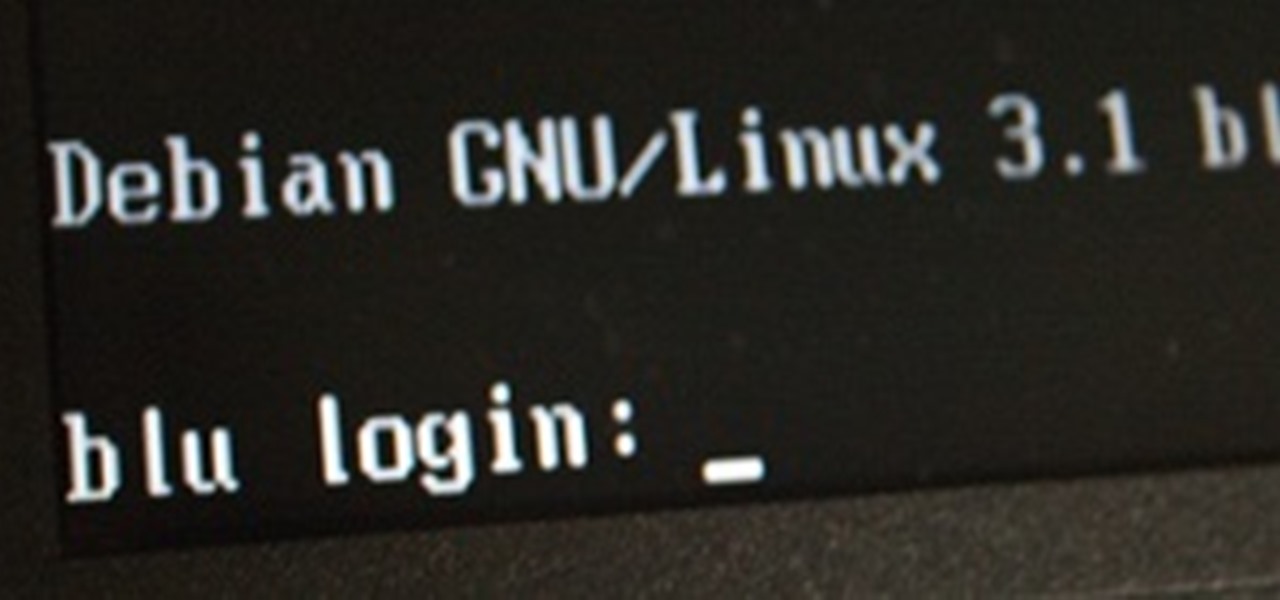
Social Engineering, Part 1: Scoring a Free Cell Phone
This Null Byte is the first part in a mini-series on the art of Social Engineering. I will be teaching you how to effectively defend yourself against it.


This Null Byte is the first part in a mini-series on the art of Social Engineering. I will be teaching you how to effectively defend yourself against it.

Here's another delicious Byte. Ucha Gobejishvili, a Georgian Security Researcher under the handle of longrifle0x, discovered two cross site scripting (XSS) vulnerabilities on the official website of Forbes. He discovered the hole in two different locations on the site, and has already informed the website of the vulnerability.

Null Byte is looking for moderators. More threats to computers exist every day. Not only do we have computer viruses and malware, but we have rootkits and other nasty pieces of code that can log your keyboard strokes or even add your computer to a botnet to attack other websites. Your computer can be infected even if you have anti-virus software installed. I can't stress enough how easy it is for a hacker to write a piece of code that gets around every piece of anti-virus software.

There is a near-infinite amount of ways a computer can be broken into. But that does not mean that there isn't a reason to secure our computers as best as we possibly can. It's like the principles of a secure house. Which are the most secure houses? The ones with locks and advanced alarms, obviously, but not for the reasons people normally think.

Leaving your wireless router at its default settings is a bad idea. The sad thing is, most people still do it. Once they've penetrated your network, hackers will change your router settings so they'll have an easy way back in. This allows them to change your network into a shell or proxy so they can forward their traffic anonymously through you when committing other dirty deeds.

You walk over to your laptop, wiggle your mouse to wake up the screen, then fire up your browser to come visit Null Byte. Catching the article about Anonymous and how they presumably will not take down the Internet, you find yourself wondering... how would someone take down the Internet? Could they even do it?

If you're a frequenter of Null Byte, I bet you have at least some interest in information security. Furthermore, you have a hobby that if applied in certain ways, will get you arrested. I've received quite a few messages from the community here about federal cybercrime law and how it applies to them, so I decided to get together with my lawyer to come up with some answers.

Remember that scene in The Matrix when Trinity uses a realistic Nmap port scan, followed by an actual SSH exploit (long since patched) to break into a power company? Well, believe it or not, but that scene is not far fetched at all. If you want to exploit vulnerabilities and root boxes, you'll need to learn how to perform the necessary reconnaissance first. In fact, you will spend far more time researching your target then you will exploiting it. In this article, I am going to show you the fi...

The Elder Scrolls V: Skyrim set off a bang in the video game world this month. It will likely be video game of the year a few times over. Skyrim is another part to a series set in the fantasy world of Tamriel, a world filled with mystical creatures, folklore, and even its own history. It's quite the beatuiful and immersive experience. If you have not picked up the game yet, please do (my fiancée even plays!). Also, make sure to buy it new, so the hard working coders at Bethesda get the money ...

Last week, we had a great contribution from Christopher Voute, who introduced us all on some of the basic moves in Python. Now, who else will share their knowledge and tackle some of the topics below?

In the last article, we left off with the Tor network and its hidden services. As I mentioned, Tor is not the only option in the game, and I want to offer a general introduction to I2P.

What is Google Dorking? Well, simply put, "Google Dorking" is just an efficient way to utilise keywords in order to perform very specific searches on a given subject. In this case, one would look for websites/servers that are vulnerable to attacks or are configured improperly by using specific search criteria that should yeild results, should it find matches to known mistakes/errors in a website or webserver.

When it comes to social engineering, Null Byte is here to show you how it's done. Social engineering is the key fundamental to unlocking tons of possibilities and opportunities in your everyday life. So, what is social engineering? Social engineering can be called many things. It's taking nothing and turning it into something. It's taking the bad and making it good. Above everything else, it's the art of manipulating the world and people around you—coercing that salesman into giving you a low...

In this Null Byte, we are going to be installing Packet Injection capable drivers in Linux. These are the open-source drivers required to sniff wireless traffic, inject packets to crack a wireless access point, and go into "monitor-mode". These drivers are superior because they are the fastest available drivers.

Hey, hackers! Now that you've hacked/owned your first "box" in my last article, let's look a little closer at another great feature of Metasploit, the Meterpreter, and then let’s move on to hacking a Linux system and using the Meterpreter to control and own it.

We've talked about the deep web before, but we never really covered the details of what's out there. It occurred to me that a nice list of resources would be very helpful to all of you anons out there. Think of this like a helpful brochure to the hidden web.

This morning, I received a message from a friend who was reading a hack log, and she had some questions about the commands used. This got me thinking, as Linux has a ton of commands and some can be archaic, yet useful. We are going to go over everything you need to know to read a hack log and hopefully implant the steps in your head for future use.

Formerly ipchains, iptables is a script-based firewall that's included with both Mac and Linux operating systems. In my opinion, it's the best firewall in existence. The only downfall is that it's complicated for some people to use due to its script-based nature. But this should be disregarded, as firewalls are nearly the entire security of your computer.

The community here on Null Byte has always been great and helpful in sharing their know-how, even before I took up admin duties in this World. I jumped at the chance of leading Null Byte because I enjoy teaching and informing people on all of the important need-to-know things out there, but more so than that—there is a deeper reason.

People sometimes ask me about the IT industry here in the states. These folks are usually either trying to get into a certain field, or looking to switch or move into another one. Right now, you may currently be a Computer Science major that will be graduating shortly and are interested in the current state of IT security.

Introduction The 3 major anonymity networks on the Internet are Tor/Onionland, I2P and Freenet. If you feel confused on which one is the "best" one to use the answer is simple. Use all three!

Imagine you're in Paris and you need to get to Versailles. Looking around for directions, you come to a cold realization—you do not speak a lick of French! How are you going to get to Versailles and what happens if there is a detour? It will be a difficult struggle, and you'd probably get lost and eventually fail. This is why it's important to know some of the country's language before taking that trip in the first place.

In the first part of this series, we learned about darknets, as well as how they came about. But these patches of forgotten Internet are not the oasis of free information you might think. Despite being hidden—or just harder to come across—these networks are no more safe then anywhere else on the 'clear' Internet. The nature of networking and routing means your location is always known in server logs. It only takes one phone call to your ISP with your IP address to obtain both your physical ad...

Amazingly, a lot of people I know haven't even heard of SOPA or PIPA. Now, every English-reading person with an internet connection will finally have those two four-letter acronyms emblazoned in their minds. For the entire day today, Wikipedia's English-language site will be in total blackout in protest against the proposed legislation in the United States. And that's not all. MoveOn, Reddit, BoingBoing, Mozilla, WordPress, TwitPic and other popular websites are down today in protest.

Wireless networks. Nowadays, everyone uses 'em, but most don't secure 'em. On average, I can drive up and down any block in my city and find at least one or two open or semi-open networks on any given day. With some changed MAC addresses for good measure, an attacker can use your network as a spring board for who knows what. When the police come a few days after, they are coming to your door—and not to talk about how nice your lawn is. Don't be that guy.

No doubt you've seen some of the hack logs being released. One part that stands out over and over again is the heavy database usage. It used to be early on that virus and hackers would destroy data, usually just for lulz. However, with the explosive commercial growth of the Internet, the real target is turning into data theft. You should learn how this happens so you can protect yourself accordingly. Let's take a look at what makes this possible and dare I say, easy.

Anonymity is something that doesn't exist today. Everything you do in the world is tracked, from the purchases you make to surfing the internet—even taking pictures on your iPhone. Everything you have ever said and done on the internet is still there—somewhere. This is called caching. For example, when a site is down, you can view its cached page on Google.